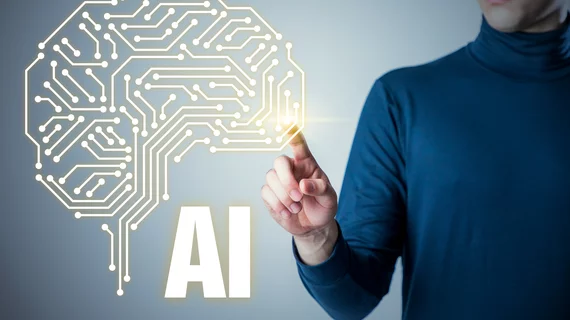7 factors that will push implementation of AI in healthcare
The adoption of artificial intelligence (AI) and deep learning in healthcare is becoming increasingly popular and it's being propelled by seven distinct factors, according to one of two partnering editorials published online Aug. 30 in JAMA.
Christopher David Naylor, MD, DPhil, a physician and medical researcher at the University of Toronto, described in his article that the increasingly fast uptake of AI and deep learning in medicine is accredited to the following seven factors:
- All forms of digital imaging are becoming more powerful and integral to medicine and healthcare.
- Digitization of health-related records is accelerating from the sharing of high-quality, labeled and specialized data sets.
- Deep learning is highly adaptable for integrative analysis of heterogeneous data sets created from diverse sources.
- Deep learning has the capacity to inform new discoveries in health research and facilitate hypothesis generation.
- Deep learning shows promise for streamlining routine work by healthcare professionals and empowering patients by promoting a safer, more human and participatory paradigm for healthcare.
- Deep learning is diffusing rapidly through a combination of open-source and proprietary programs
- Basic deep learning technology cab adequately perform with continuously growing data sets.
Additionally, Naylor explained that while AI and deep learning serve as an analytic and modeling tool, they also represent the current convergence of health and data sciences.
“Barriers to adoption will rightly be more rigid in healthcare than in many other fields in which software programs relying on deep learning and other forms of machine learning are used daily by billions of people,” Naylor wrote.
“However, pressure to deploy deep learning and a range of tools derived from modern data science will be relentless, given the extraordinarily rich information now available to characterize and follow vast numbers of patients, the ongoing challenges of making sense of the complexity of human biology and healthcare systems, and the potential for smart information technology to support tomorrow’s clinicians in the provision of safe, effective, efficient and humanistic care.”
In a partnering viewpoint, Geoffrey Hinton, PhD, a cognitive psychologist and computer scientist with Google’s Brain Team and University of Toronto, explained that deep learning has undoubtedly changed the healthcare landscape, especially in image interpretation, speech recognition and language translation.
Because artificial neural networks of deep learning mirror the brain’s ability to learn difficult patterns, Hinton noted that the networks also model complicated between inputs and outputs used for predicting future medical events from past events or large data sets.
“As data sets get bigger and computers become more powerful, the results achieved by deep learning will get better, even with no improvement in the basic learning techniques, although these techniques are being improved,” Hinton wrote.
A remaining challenge artificial intelligence has yet to overcome, Hinton wrote, is detecting patterns in unlabeled data in the process called “unsupervised learning."
“As new unsupervised learning algorithms are discovered, the data efficiency of deep learning will be greatly augmented in the years ahead, and its potential applications in healthcare and other fields will increase rapidly,” according to Hinton.
Overall, clinicians and physicians should be aware of the challenges that come with implementing AI and deep learning into everyday workflow and know how to efficiently approach it, wrote William Stead, MD, chief strategy officer for Vanderbilt University Medical Center, in an overarching editorial.
Medical professionals may benefit from viewing the output of AI programs or devices as statistical predictions that may be open to error, according to Stead.
Furthermore, clinicians, AI researchers and developers of AI applications and devices should work together to accelerate progress and limit consequences of applying AI in healthcare.
“This technology [AI and deep learning] can augment human intelligence to improve decision making and operational processes,” Stead wrote. “Physicians need to actively engage to adapt their practice and to shape the technology.”

